13 Hair Problems and What They Mean
Hair problems can be extremely frustrating and tough to deal with! Although healthy individuals can lose up to 100 hairs a day on top of their heads, hair loss, graying and changing hair signs may be a cause for concern. Understanding the signs that manifest in the hair on your head can help you understand if you have an underlying health problem.
The issues with your hair may be one isolated problem, but most commonly are a combination of related issues. The following health issues can cause any number of hair problems such as hair thinning, brittle hair, premature graying and hair loss.
1. Lack of Protein and Hair Problems
Keratin is a protein that makes up hair. This means that protein is an essential part of your hair growth and must also be in your diet. Poor protein intake can cause brittle, easily broken hair that is hard to grow. Weak hair at the top of your head may break easily resulting from chemical and heat treatments, leading to shorter top layers.
One can have a lack of healthy protein and amino acids in their diet. This may be the case with people who under eat and vegans. It can also be a problem if one has an inability to digest protein effectively due to leaky gut and low stomach acid levels. The latter is discussed at the bottom of this article.
Add in a variety of healthy proteins to your meals daily. Include 100% grass-fed beef, organic poultry, pasture sourced eggs and wild caught fish like salmon. Additionally, using high quality protein powders such as bone broth protein can help improve the assimilation of amino acids needed to produce keratin. If you are a vegan, consuming high quantities of single celled algae like spirulina and chlorella can be very helpful as well as doing pea or hemp protein powders for easy to digest proteins.
2. A Lack of Vitamins and Minerals
Many nutrients are required for the optimal health of your hair and any vitamin deficiency can result in hair loss. The body’s vital tissue and organs take a higher priority and are the first to feed from nutrients when the body is lacking vitamins and minerals, leaving the hair depleted of its tools required to maintain strength and shine.
For instance, a lack of vitamin B12 in your diet may cause premature graying while a vitamin C deficiency can leave your hair dry and dull. Other vitamins including A, B, C, D and E as well as minerals such as magnesium, zinc, copper and selenium are also vital to hair health. A deficiency in these nutrients can lead to hair problems.
Consuming a quality diet rich in a variety of colorful fruits, vegetables, herbs, wild-caught fish and pasture-raised animal products should provide you with much of your nutritional needs. If you are changing your diet only recently following years of unhealthy dietary choices, give your hair time to grow luscious again as the damage takes time to repair.
Most people would benefit from a high quality, blood sugar supportive multi-vitamin with preactivated forms of key nutrients that are easy for the body to assimilate. As we age, this need only grows. I like High Energy Support as a great, low cost multi-vitamin with preactivated nutrients and high doses of blood sugar stabilizing nutrients such as chromium and vanadium.
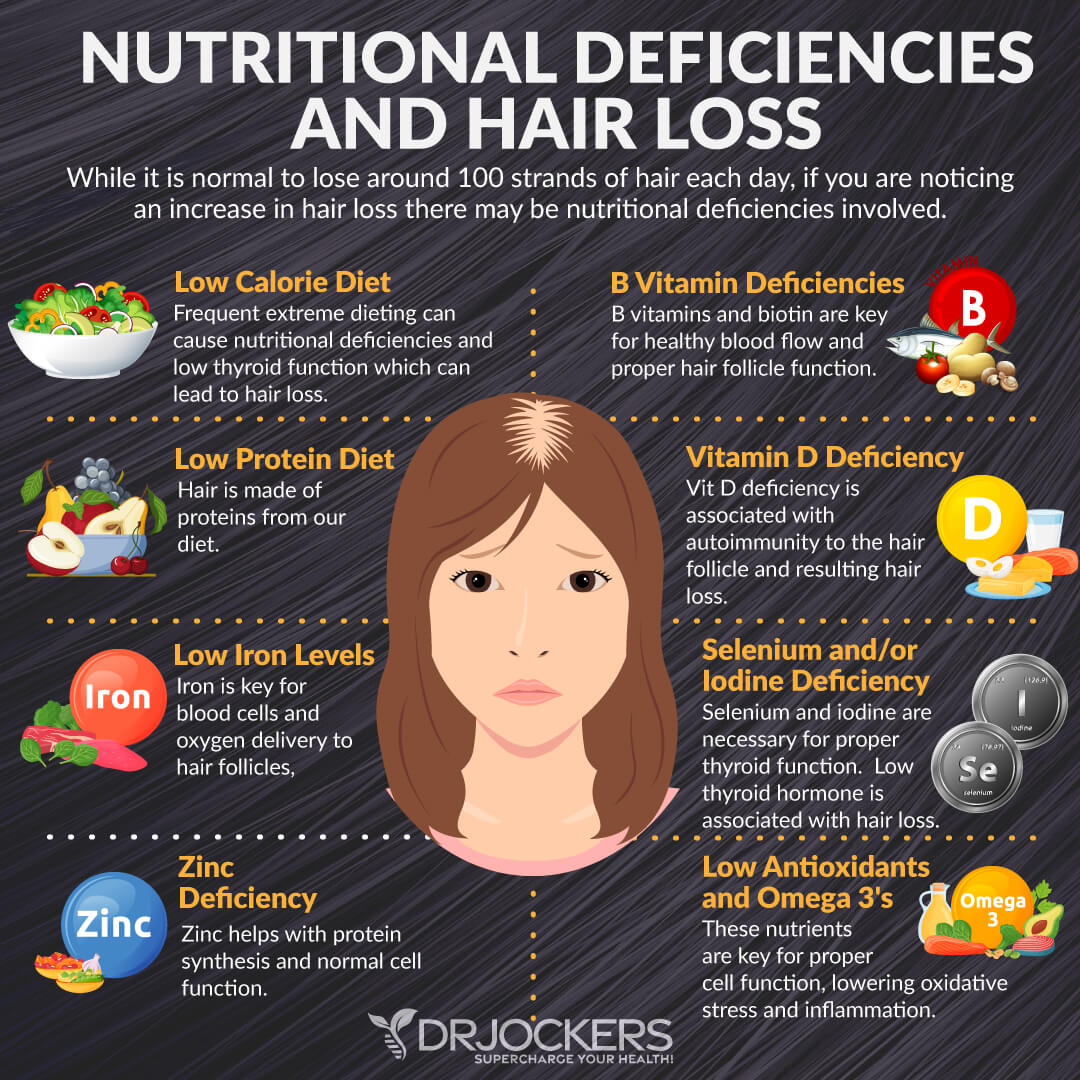
3. Iron Deficiency
A review of 40 years of research supports that hair loss accompanies the symptoms of fatigue and dizziness caused by an iron deficiency (5). When the body becomes anemic from iron deficiency, oxygen is used to support vital life processes rather than maintaining the health of the hair on your scalp.
If you believe you are iron deficient, addressing the problem typically results in improved hair quality and decreased hair loss. The major issues with iron deficient anemia include excessive bleeding, low iron intake and/or low stomach acid and leaky gut.
For all of these conditions, supplemental iron can be beneficial for a period of time. Ideally, this is something you would only need to take for a short period of time such as 1-6 months until you fix the root cause of the problem and improve your iron uptake from your diet.
Best food sources of iron include grass-fed red meat, organ meats such as liver and pasture-raised eggs. The iron supplement I recommend is called Iron Power, which uses a gentle but highly effective form of iron for short term use to boost up red blood cell and hemoglobin production and enhance tissue oxygenation levels.
4. Dehydration
Water accounts for an estimated 65% of our total body. It should be no surprise to then understand how dehydration can result in a variety of health problems. Of these concerns weak and damaged hair problems can result in increased hair loss and may be a sign that you need to drink more water.
Remember, consuming beverages like alcohol and caffeinated drinks can actually cause you to lose water acting like a diuretic. Soda beverages and sugar sweetened lemons and teas should also be avoided as they do not contribute to your total water intake. Instead drink herbal teas and electrolyte rich coconut water kefir and other fermented beverages.
Be sure to drink at least half your body weight in ounces of purified water daily. Consider adding in lemon and superfood extracts to improve your micronutrient intake.
5. Lack of Quality Fats
The word “fat” has been unjustly classified as a negative thing for our bodies as it often is assumed that the fat we consume is accumulated on our stomachs and hips. However, healthy fat sources are extremely important for producing proper hormones and are critical for healthy hair and skin.
These good fats enforce moisture protection in the skin and hair to maintain shine and youth. Key fat-soluble vitamins A, D, E and K are also better absorbed with dietary fat consumption. A deficiency in fat- and fat-soluble nutrients can cause splitting hair problems as well as a dry and flaky scalp (6)
Add good dietary sources of essential fats to your meals including wild-caught salmon, grass-fed butter, coconut oil, avocados, olives, olive oils, nuts and seeds.
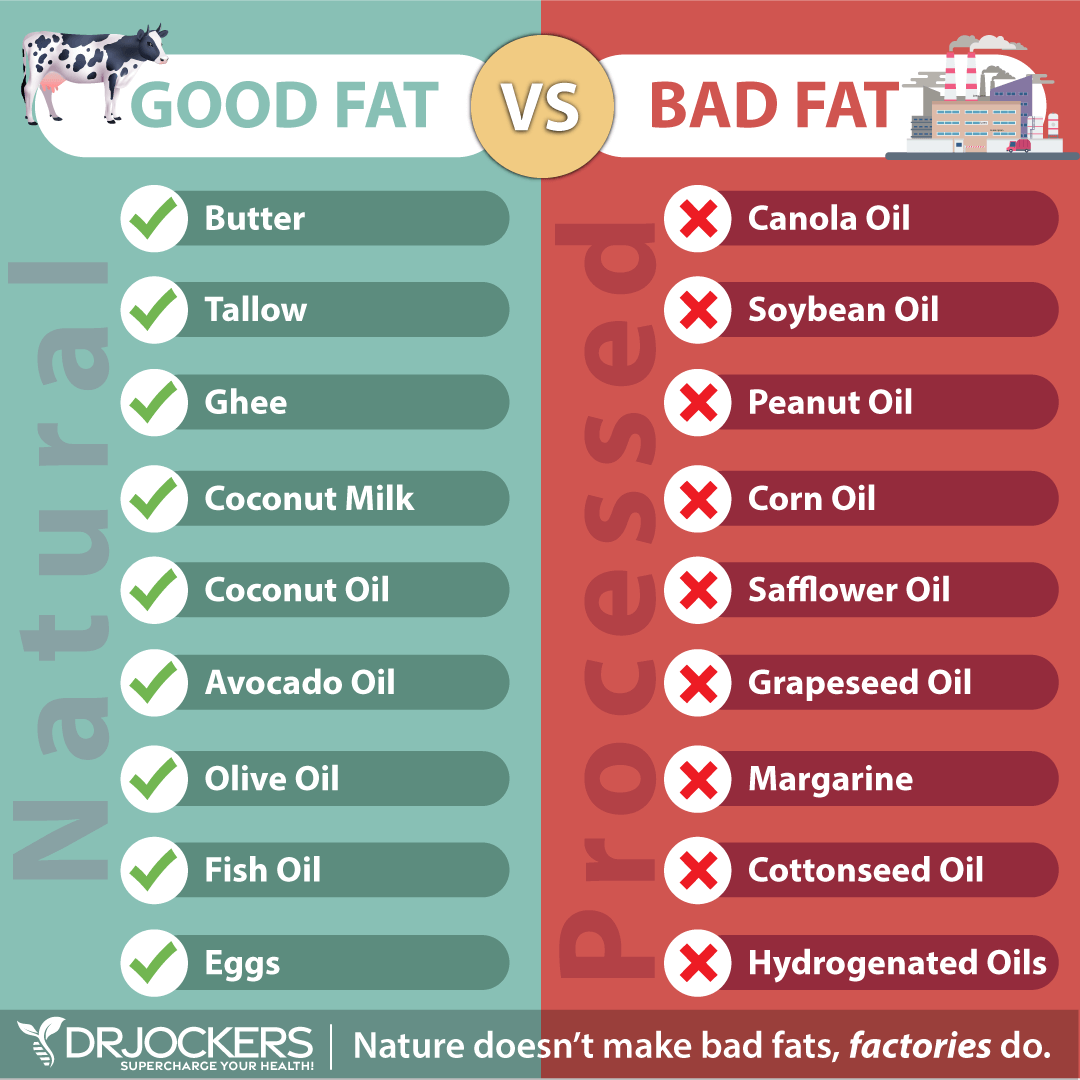
6. Stress and Hair Problems
The old adage that you hear parents telling their kids that stress is going to make them gray or worse, make their hair fall out is not entirely a false old wives tale. The general medical belief is that genetics is the greatest cause for early gray hairs, thus you’d have to blame your parents and not your kids for your hair dilemma.
However, some researchers do believe that stress creates threads of gray hair (9). Stress hormones may block communication with the hair follicle resulting in melanin absorption and as a result, gray hair.
Short term stressors will not cause your hair to fall out but chronic stress can. Physiological stress that is significant and consistent may be a result of medical, lifestyle or dietary changes. For instance, a severe illness, relational problems, diagnosis, major surgery, life altering events or changing sleep patterns can result in significant physiological stress.
Stress influences hair health by causing vitamin and mineral deficiencies. Fortunately, learning to manage and address the stressors in your life along with eating a healthy diet can stop and reverse your hair problems. If you are in a state of adrenal fatigue, here are helpful strategies to apply in this article. Additionally, here are some herbs that can help you to adapt to stress more effectively.
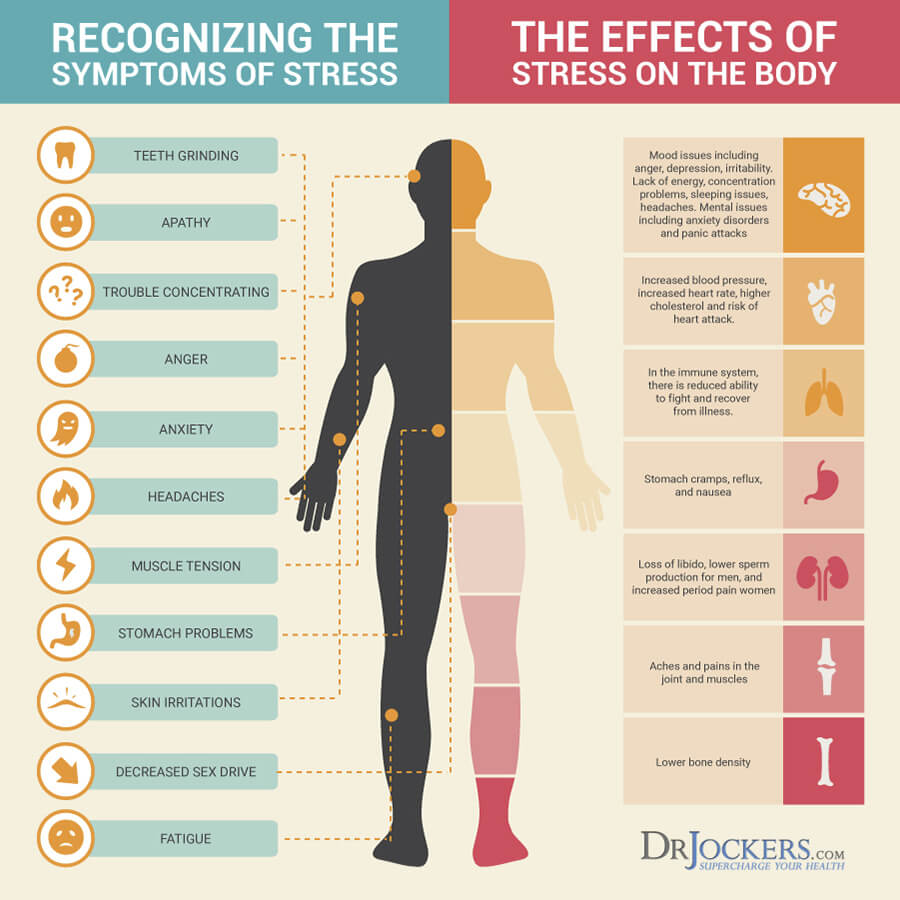
7. Pregnancy or Menopause
If you have ruled out other causes of your hair changes, consider if you are pregnant or entering menopause. Major hormonal changes affect an expectant mom’s body. Greater hair growth can be a result of elevated estrogen levels resulting in thicker hair. Hormones may also bring about frizzy hair resulting from the slow rate of losing older and damaged hairs.
Pregnancy also can cause shifts in the production of oil-producing glands. Once normally straight hair may become wavy and previously dry hair may not be oily. Changes are temporary as they only occur during pregnancy return to normal following childbirth.
Typically, menopause always affects hair. As estrogen and progesterone levels decrease, you may feel that you are losing hair. Changing hormones results in thinning hair or a receding hairline along the temples and hairline. Another symptom of menopause may be an increase in facial and body hair as well. (8)
8. Thyroid Issues and Hair Problems
A mild difference in thyroid hormone production can cause hair to become fragile and result in hair loss or other hair problems. This may be caused by a condition known as hypothyroidism or an underactive thyroid. Individuals with this condition have a thyroid that does not synthesize enough hormones leading to a slow metabolism.
Another symptom of an underactive thyroid is hair problems where the hair becomes dry, fine, weak and easily damaged. You may not be losing your hair as you may think but rather a change in your hair’s texture may have your hair feeling thinner. If you are struggling with hypothyroidism than read this article here for helpful strategies to improve your health.
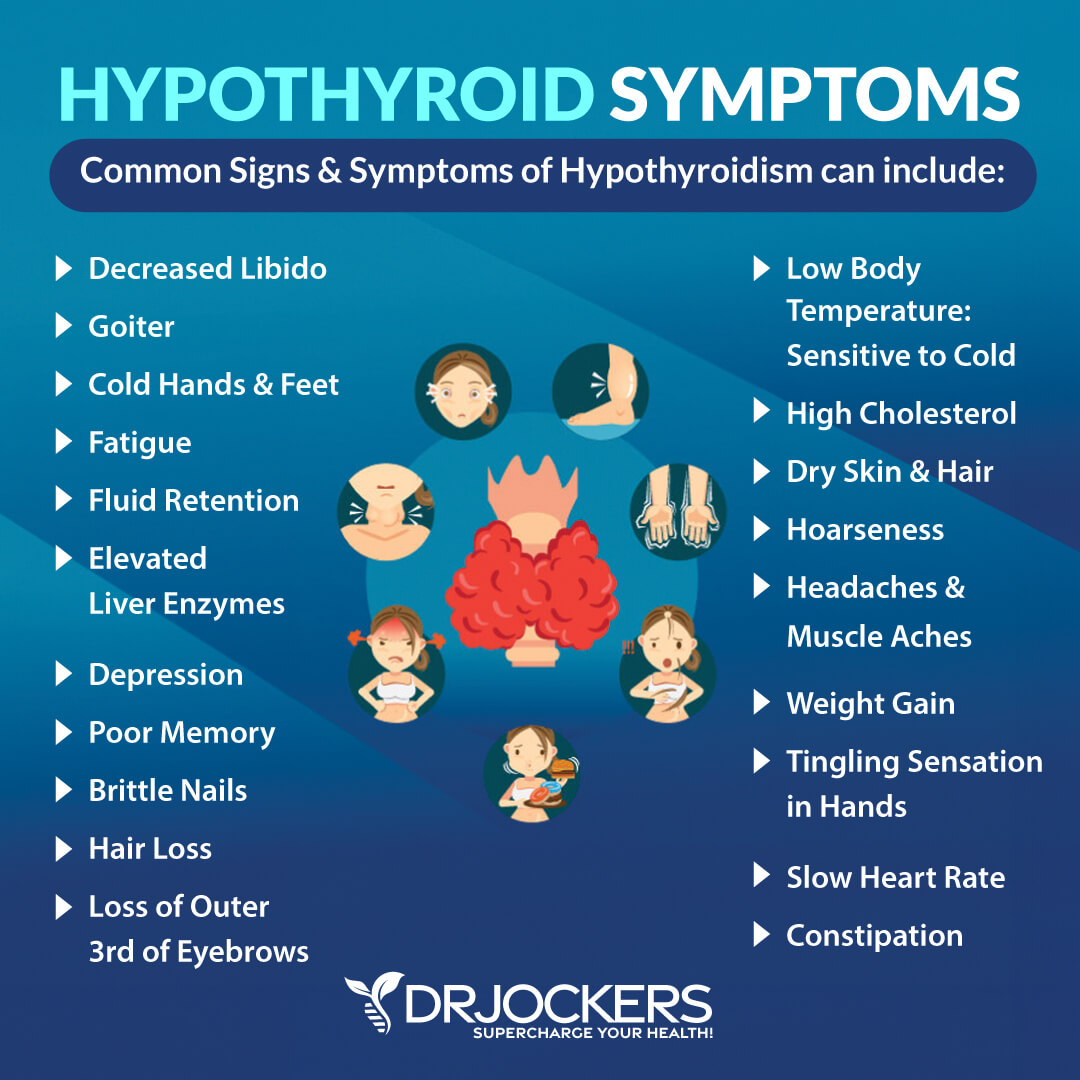
9. Polycystic Ovary Syndrome (PCOS)
PCOS or polycystic ovary syndrome affects an estimated 1 in every 10 women of child bearing age (7). PCOS results from a hormonal imbalance causing problems such as ovarian cysts, weight gain, acne, and irregular menstrual periods. Afflicted women also experience increased hair problems such as hair growth on the body called hirsutism, face and thinning and possibly receding hair on the head.
Consult a doctor immediately to determine if your symptoms are caused by PCOS. Typically PCOS is associated with high female testosterone and blood sugar imbalances. Focusing on improving blood sugar and supporting liver and gut health are key for overcoming PCOS.
10. Poor Sleep
Quality sleep is essential to cellular regeneration and repair including your hair cells. If you experience changing sleep patterns or overall poor quality sleep then you will likely witness physiological symptoms affecting your hair color and strength.
Inadequate amounts of sleep cause disturbances in hormone levels, increase stress and weaken the immune system. Individuals affected by sleep deprivation are also shown to have stronger urges for carbohydrates and junk foods like candy and late-night indulgences (10). This contributing factor alone can exacerbate any current vitamin and mineral deficiencies required for maintaining healthy hair.
Seek natural remedies to help you sleep better at night improving your quality of health and life. Here is a great article with tips and strategies to improve your sleep.

11. Aging and Hair Problems
Although various factors influence hair color and texture, your hair can also be a telltale sign of your age. Hair becomes brittle with age because it loses elasticity due to naturally lowering hormone levels. This can result in hair loss and dryer hair as oil glands decrease in size as they age reducing the output of oil produced. (11)
Depending on your skin pigmentation, gray hairs may turn up sooner than others may expect. 50% of people will have a significant amount of gray hairs on their heads by the time they reach 50 years of age. Showing signs of losing hair pigmentation and going gray can generally be associated with your age assuming your skin color and can be expected as follows:
- Caucasian: mid 30s
- Asians: late 30s
- African Americans: mid-40
Supporting your stress response, blood sugar stability and getting all the key nutrients you need can slow the graying process and push it out further and further.
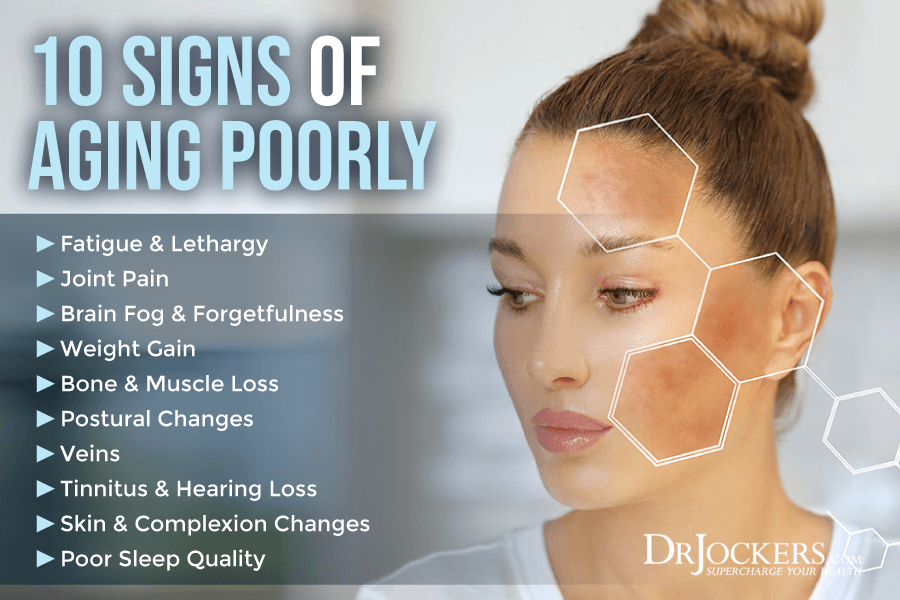
12. Autoimmune Disorders
Psoriasis is an autoimmune condition in which dry and itchy patches form from the build-up of skin cells. This common problem can occur on the scalp along the hairline. It can be confused with dandruff although an anti-dandruff treatment shampoo won’t treat psoriasis.
Psoriasis can be a symptom of the presence of another autoimmune complication such as lupus, rheumatoid arthritis, Crohn’s disease and multiple sclerosis. If you notice an itchy and scaly rash on your scalp, be sure to take action against addressing the problem immediately. Alopecia areata is another other autoimmune disorder that results in round patches of hair loss.
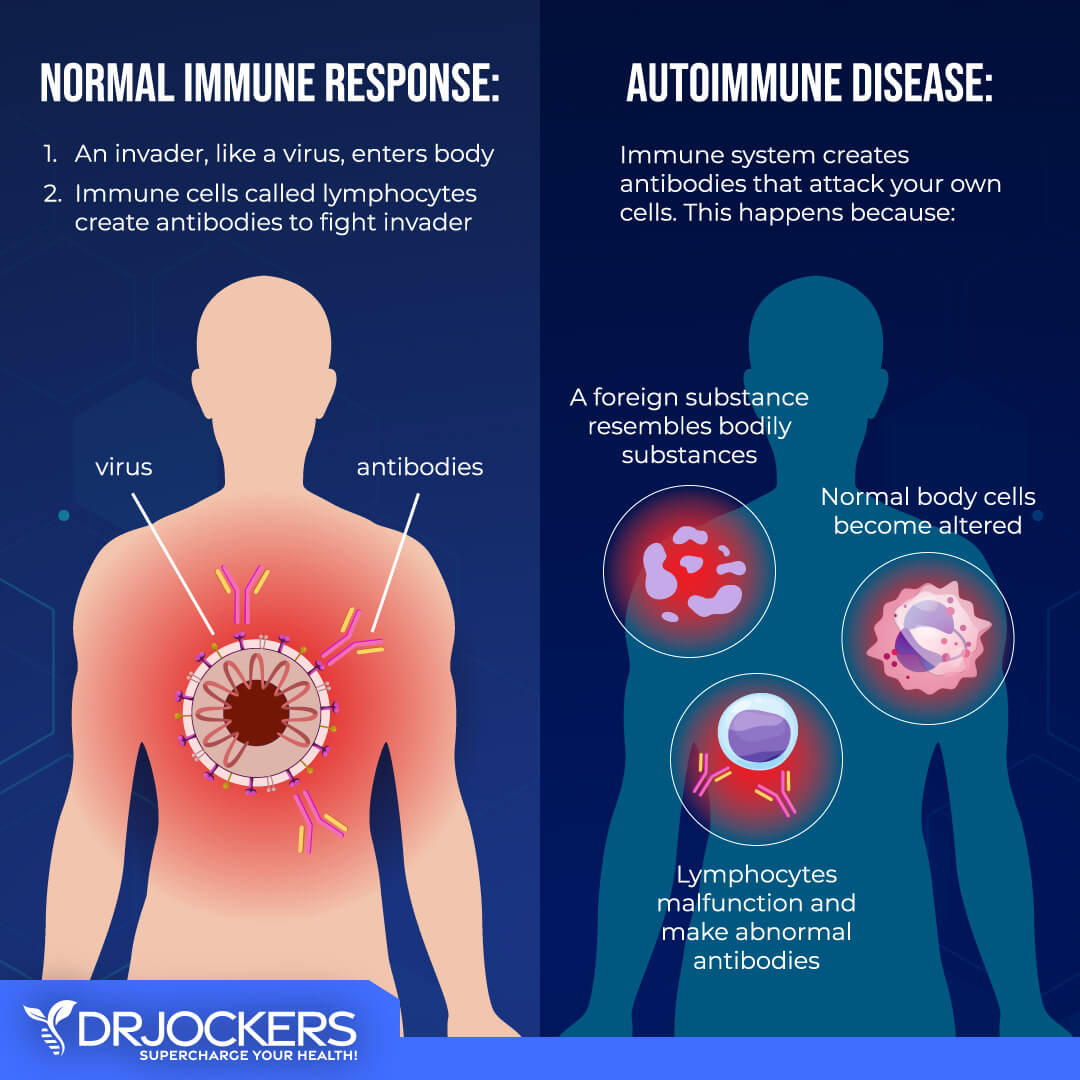
13. Low Stomach Acid and Leaky Gut
If the signs your hair are telling you leads to you learn that you have a nutritional deficiency, you may seek further testing to determine if you have a gastrointestinal problem. Both low stomach acid and leaky gut are leading causes of nutritional deficiencies including trace minerals, protein and other key vitamins and minerals.
Low biotin levels are associated with hair problems such as alopecia. Biotin is a vital water soluble B vitamin required for total health and wellness (1, 2) and you may need more biotin to improve your stubborn hair problems.
Low stomach acid slows digestion and inhibits proper nutrient absorption by allowing undigested food particles to remain in the gut. Leaky gut creates malabsorption of nutrients due to the increased permeability of the intestinal lining and therefore causes inflammation and nutrient malabsorption.
Choosing a rainbow of fruits and vegetables can improve gut motility while enhancing your dietary intake of folate. Fiber rich foods further inhibits inflammation and creates a favorable environment for healthy bacteria to flourish (4).
Reducing physical stressors on the digestive tract increases the ability of microvilli (hair-like projections) to better absorb nutrients. A deficiency in nutrients and the reason for their loss should not go unnoticed as your hair concerns may be associated with disease if left untreated. (3) To learn more about how to improve your stomach acid read this article.
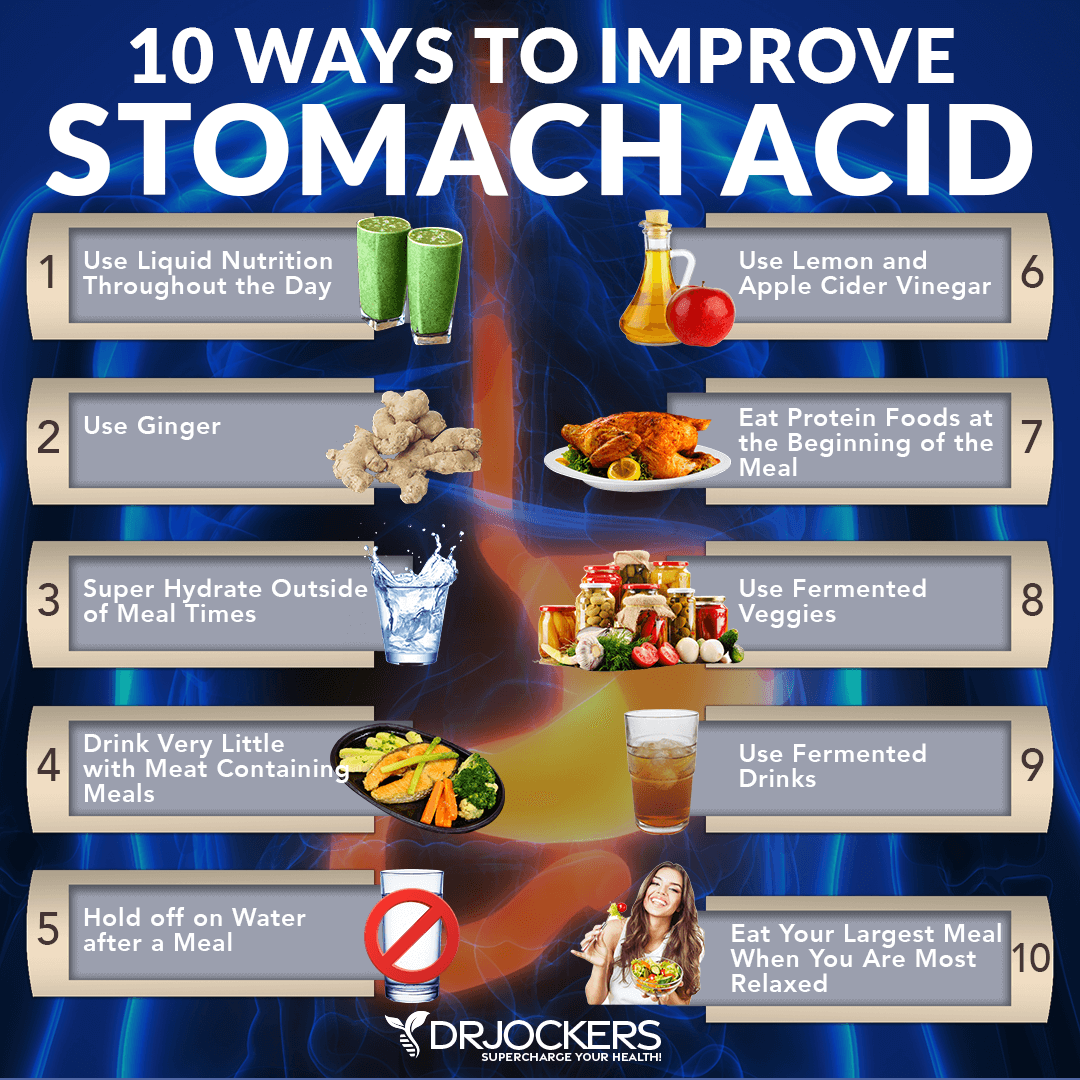
Inflammation Crushing Ebundle
The Inflammation Crushing Ebundle is designed to help you improve your brain, liver, immune system and discover the healing strategies, foods and recipes to burn fat, reduce inflammation and Thrive in Life!
As a doctor of natural medicine, I have spent the past 20 years studying the best healing strategies and worked with hundreds of coaching clients, helping them overcome chronic health conditions and optimize their overall health.
In our Inflammation Crushing Ebundle, I have put together my very best strategies to reduce inflammation and optimize your healing potential. Take a look at what you will get inside these valuable guides below!
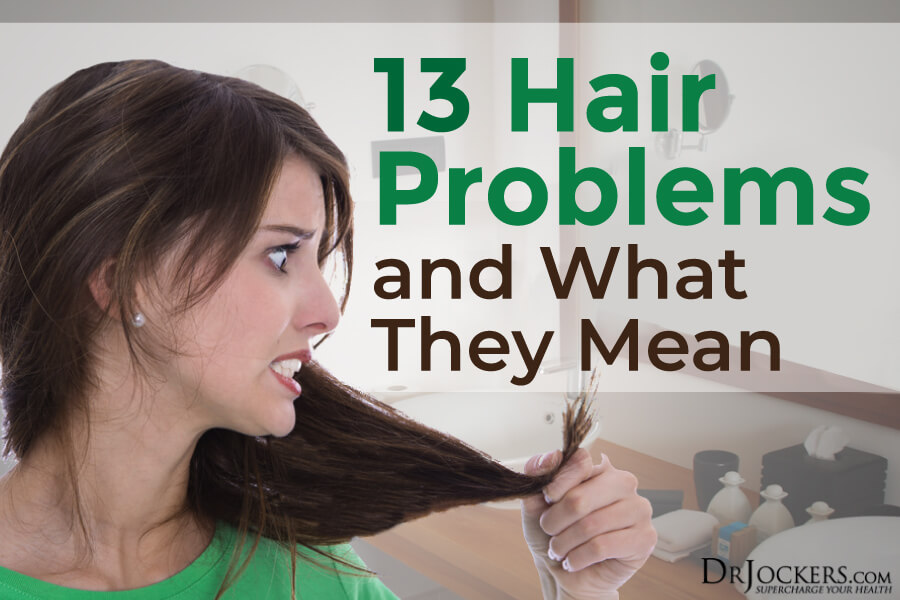
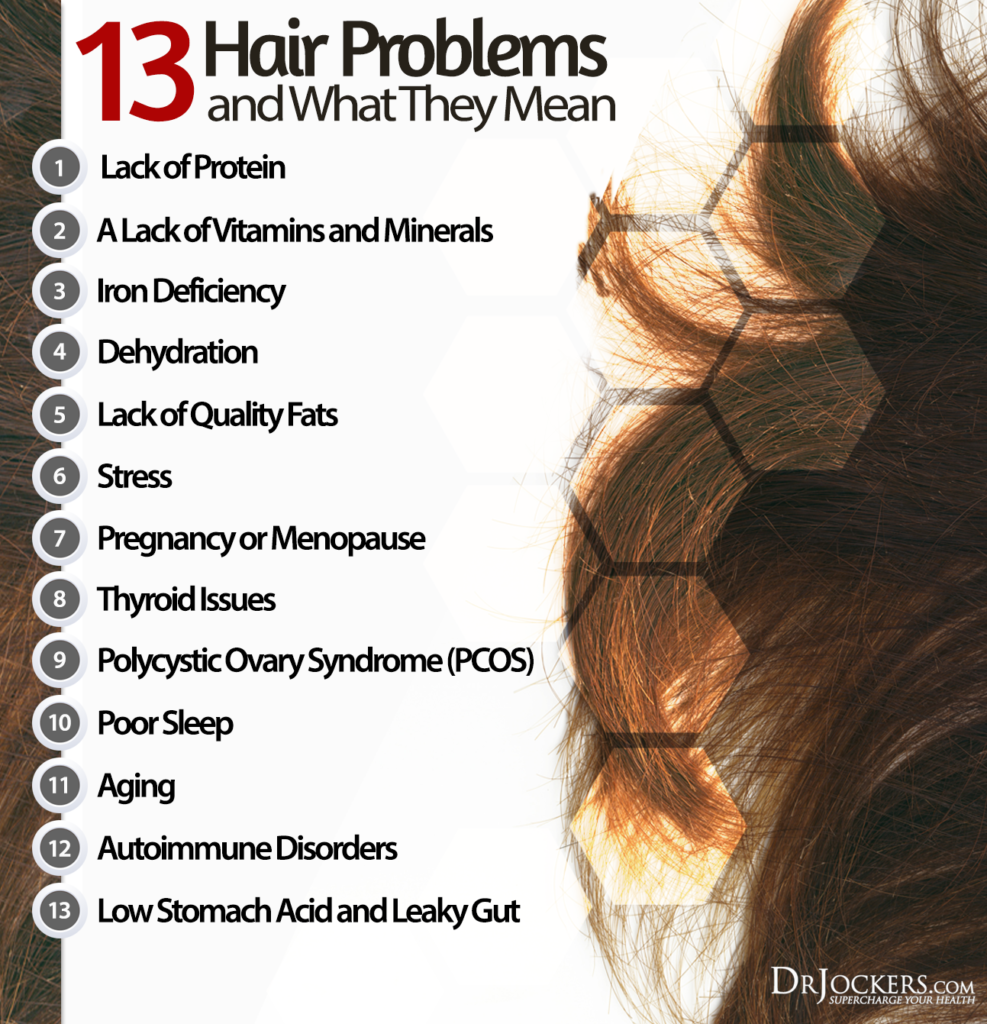


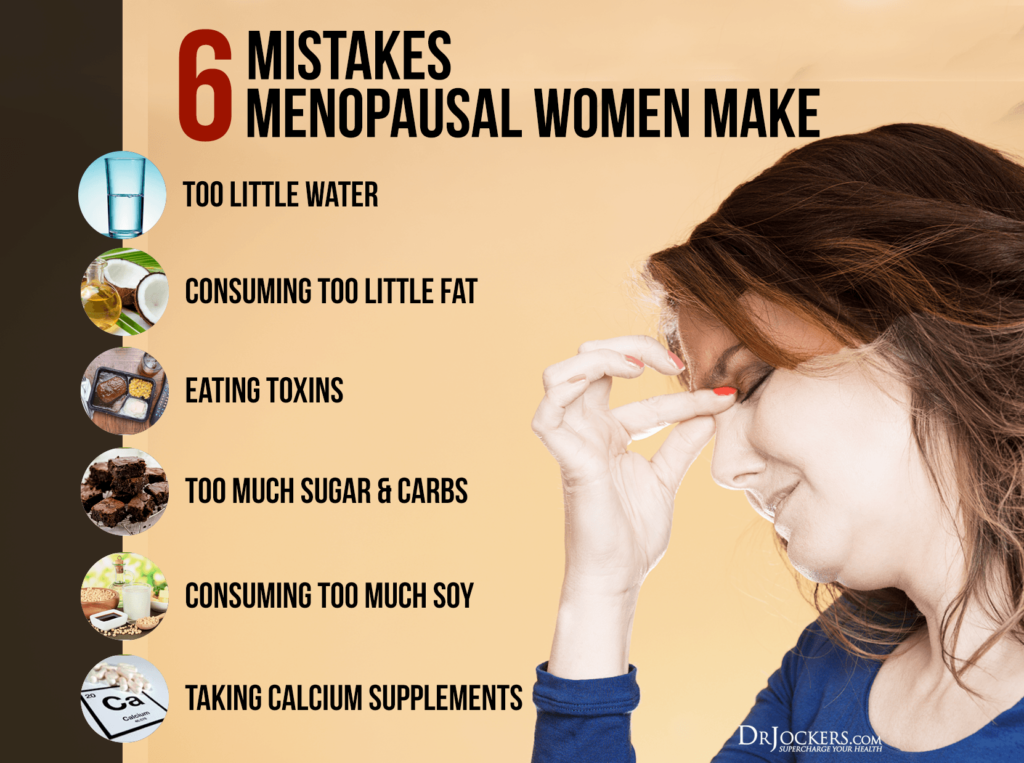





Hi thanks it’s very beneficial informations
Glad to hear this!
I read this through looking for reference to alopecia as my daughter has recently developed this. Can you give advice on what she might be lacking in and what she could take to help rectify this condition.
Sorry to hear about your daughter! I would recommend reaching out to one of our functional health coaches: https://drjockers.leadpages.co/long-distance-coaching-dr-jockers/
Why NO mention of HYPERthyroid??
From:
Celiac, leaky gut, bald spots Mary
Yes hyperthyroid can cause a lot of problems, here is a helpful article: https://drjockers.com/hyperthyroidism/
This was a very thoughtfully written article it all made sense based on the 13 scenarios shared. Thank you!
Great to hear that!